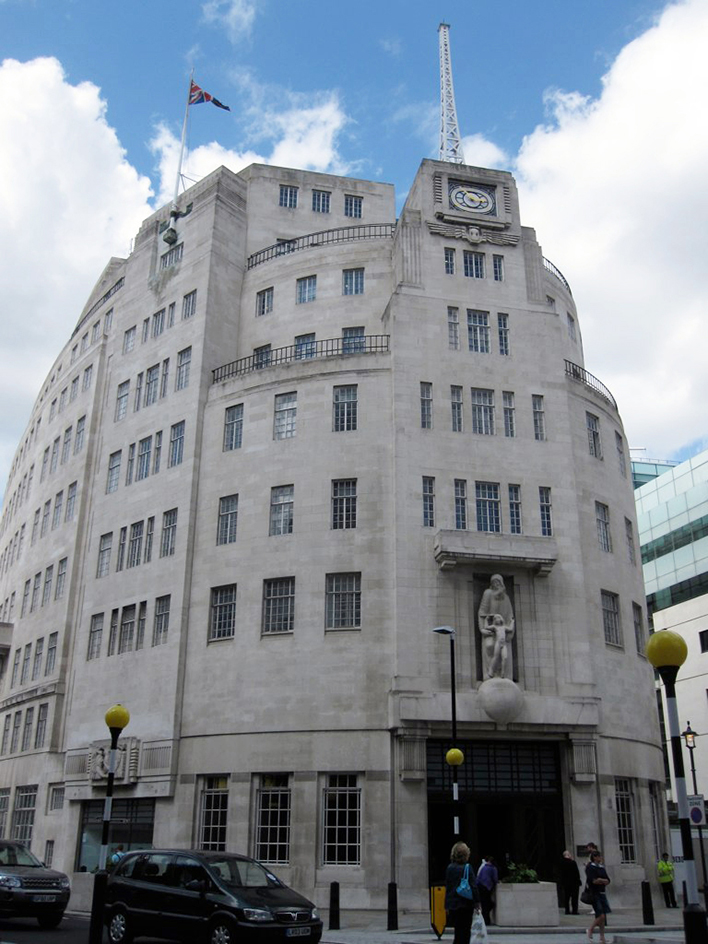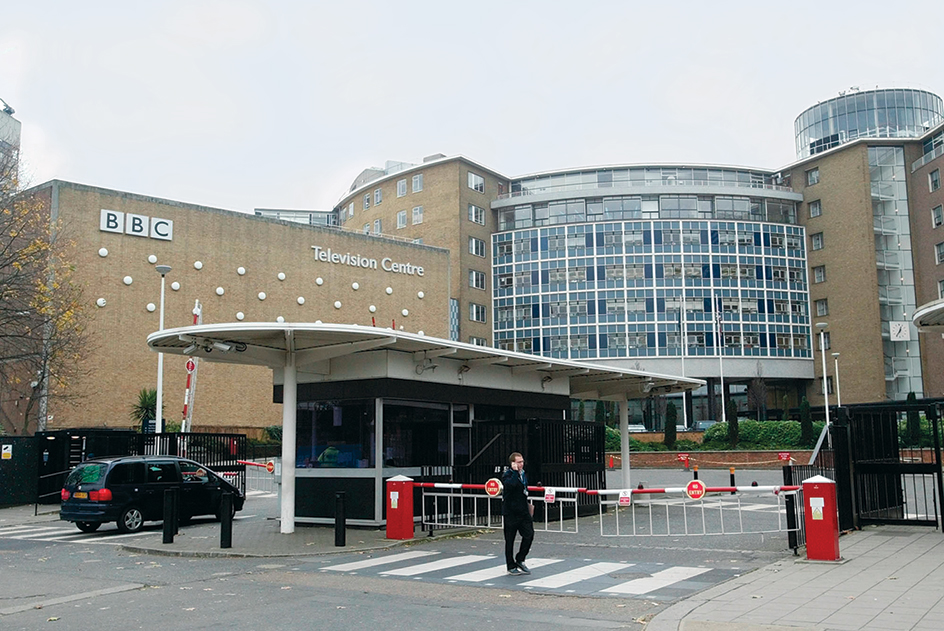British Broadcasting Corporation (BBC) broadcasts radio and television programs to audiences in the United Kingdom (U.K.) and many other parts of the world. Its radio broadcasts feature programs in English and several other languages. The BBC also produces audio, video, and written content in dozens of languages on its websites. The owners of television sets in the United Kingdom pay annual license fees that finance BBC programs there. Grants from the British government pay for programs that are broadcast to other countries. The BBC operates on a nonprofit basis and has no commercial advertising on its domestic broadcasts.

The BBC operates 10 nationwide radio networks in the United Kingdom. These networks offer a variety of programming, including popular music, classical music, news, sports, drama, documentaries, educational programs, and programs aimed at specific ethnic audiences. About 50 local and regional BBC radio services broadcast throughout England, Northern Ireland, Scotland, and Wales.
The BBC operates eight nationwide television channels—four mainstream channels with mixed programming, two children’s channels, a news channel, and a politics channel. In addition, the BBC’s Red Button service offers a number of interactive TV services—that is, digital TV services in which viewers can manipulate the programming content they receive.
Internet users can access a wide variety of BBC-produced content at https://www.bbc.co.uk. They can also access some BBC content on the video-sharing website YouTube. In 2007, the BBC signed an agreement with YouTube permitting excerpts of BBC programs to be shown on the website. The agreement also created BBC-branded channels that show BBC content on YouTube.
The British government established the BBC in 1922 as the British Broadcasting Company. In 1927, the BBC was reorganized and renamed the British Broadcasting Corporation. The BBC has complete independence in the conduct of its radio and TV services. It is a public corporation and operates under royal charter.
Until 2007, the British monarch appointed 12 governors, independent of politics, to determine the BBC’s general policies. In 2007, the Board of Governors was replaced by a panel of trustees called the BBC Trust, also appointed by the monarch. The BBC Trust was designed to be held more accountable to the public than the governors had been.
In 2017, the Office of Communications (Ofcom) took over the duties of the BBC Trust. Ofcom, a regulatory body appointed by the U.K. government, oversees the nation’s broadcasting, postal, and telecommunications industries.

